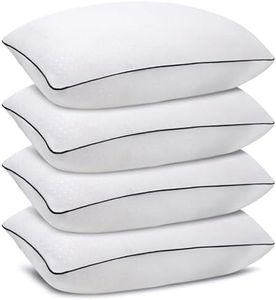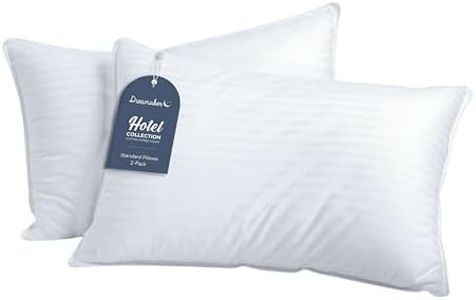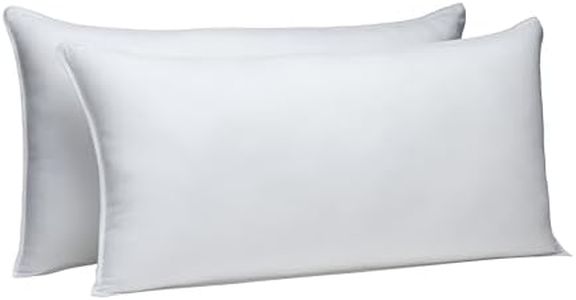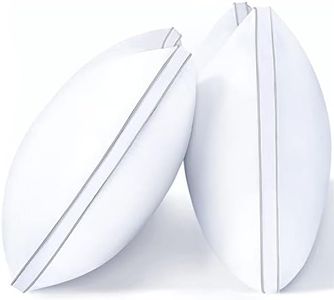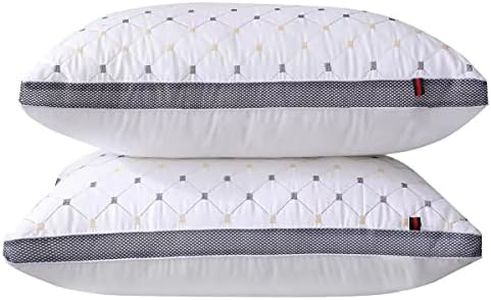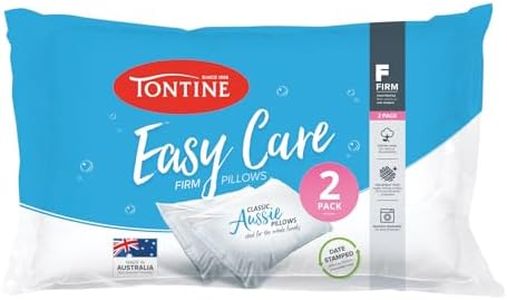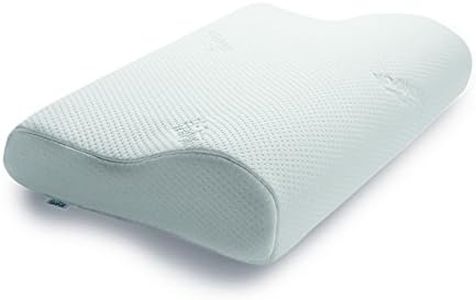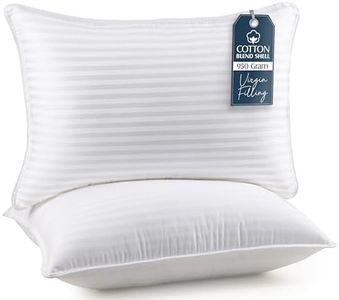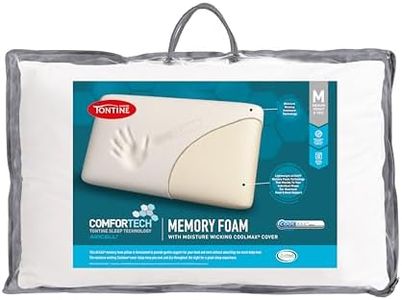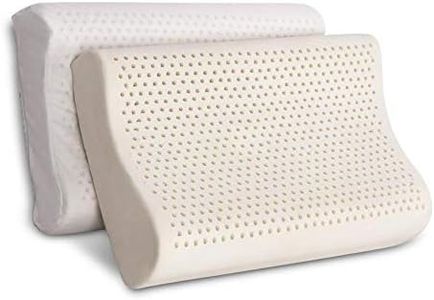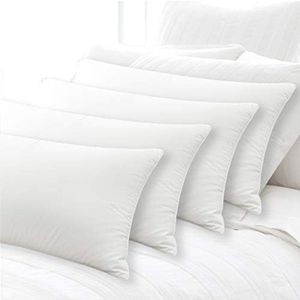We Use CookiesWe use cookies to enhance the security, performance,
functionality and for analytical and promotional activities. By continuing to browse this site you
are agreeing to our privacy policy
10 Best Hotel Bed Pillows
From leading brands and best sellers available on the web.Buying Guide for the Best Hotel Bed Pillows
Choosing the right bed pillow is essential for a comfortable and healthy night's sleep. The perfect pillow supports your head and neck, promotes proper spinal alignment, and suits your sleeping habits. When picking a pillow, you should consider how you sleep (on your back, side, or stomach), if you have allergies, and your preference for firmness. Exploring these factors helps you find a pillow that improves your rest and overall well-being.Pillow Fill MaterialThe fill material is what’s inside the pillow, determining its softness, support, and feel. Common fill types include down (soft and fluffy, but not good for allergy sufferers), feather (similar to down but firmer), synthetic (like polyester, hypoallergenic, often used in hotels), and memory foam (conforms to shape, supportive for neck and back). If you prefer something soft and luxurious, down or feather may suit you; for allergies or easy maintenance, synthetic or memory foam might be better. Your fill choice depends on comfort needs and sensitivity to allergens.
Firmness LevelFirmness describes how hard or soft the pillow feels when you lay on it. Pillows can be soft, medium, or firm. Softer pillows are better for stomach sleepers who need less head elevation. Medium pillows are often ideal for back sleepers who need a balance of comfort and support. Firm pillows give extra support and are suited for side sleepers to keep the head and neck aligned. Choose a firmness that matches your sleeping position for best comfort.
Loft (Pillow Height or Thickness)Loft is the thickness or height of the pillow when it is lying flat. Low-loft pillows are thin and best for stomach sleepers, as they prevent neck strain; medium loft suits back sleepers who need moderate support, while high-loft pillows are thick and help side sleepers keep their head aligned with the spine. Selecting the right loft helps maintain good posture and prevents aches.
Pillow SizePillows come in standard sizes: standard, queen, and king. Your choice should fit your bed size and how much pillow space you want. Standard is good for most people and fits standard bed widths, queen offers more space for moving around, and king is widest, suitable if you want extra length or have a king-size bed. Think about your bed size and personal preference for pillow space when choosing.
Allergen Resistance and HygieneSome pillows are made to resist dust mites, mold, and other allergens, which is important if you have allergies or sensitive skin. Materials like hypoallergenic synthetic fills or pillows with anti-allergy covers can help. Choosing a pillow that's easy to wash or comes with washable covers makes it easier to keep your sleep environment clean.
Temperature RegulationIf you tend to sleep hot or cold, temperature regulation is important. Some pillows use cooling gel, breathable covers, or natural materials to help prevent overheating. If you get warm at night, look for cooling or moisture-wicking features. If you often feel cold, a denser pillow with warmth-retaining properties may suit you better.
